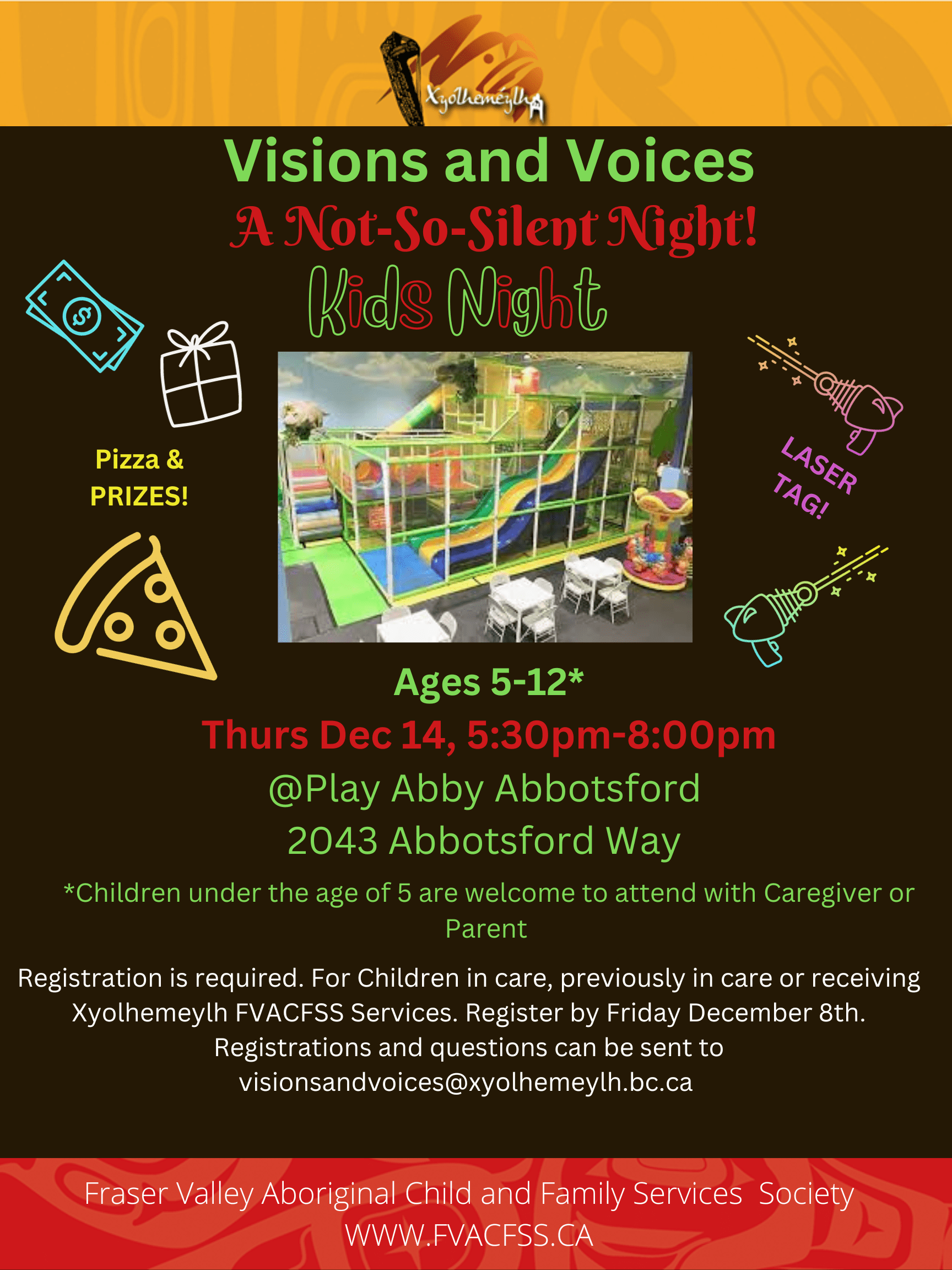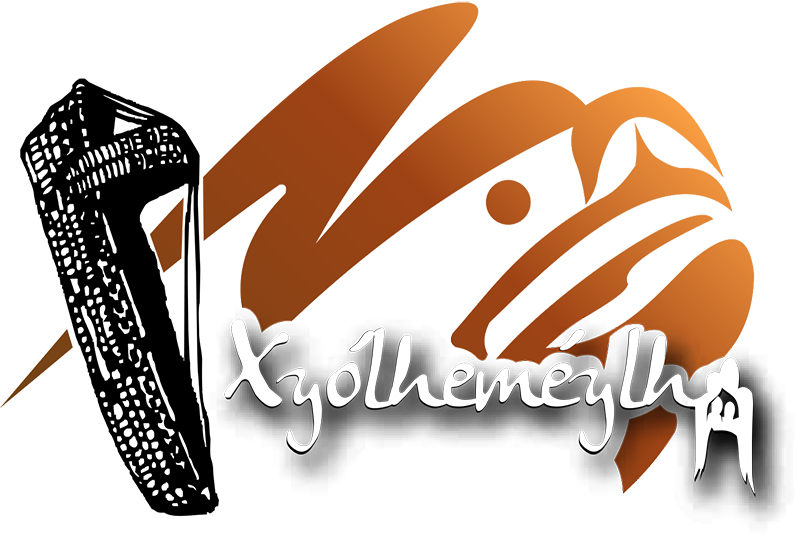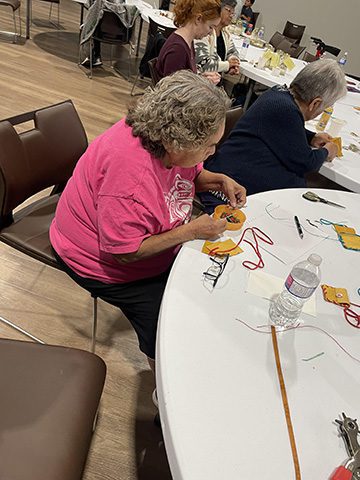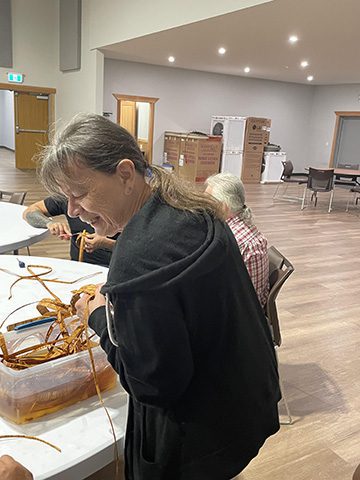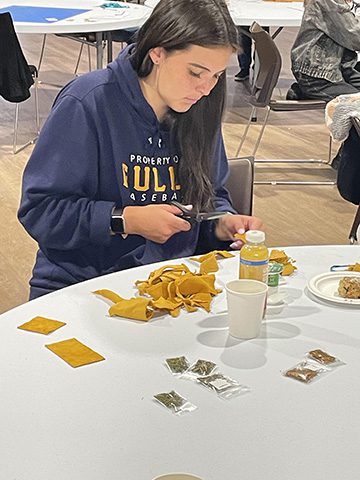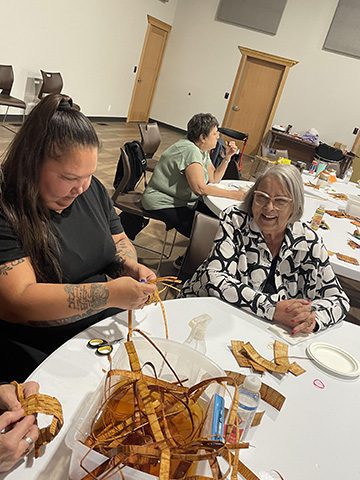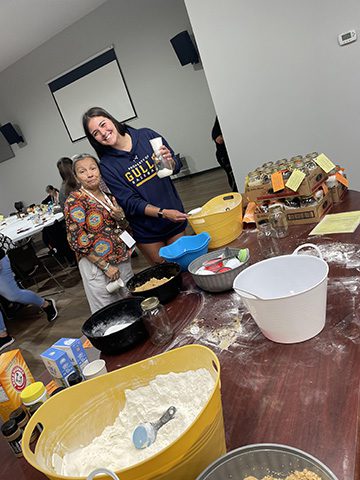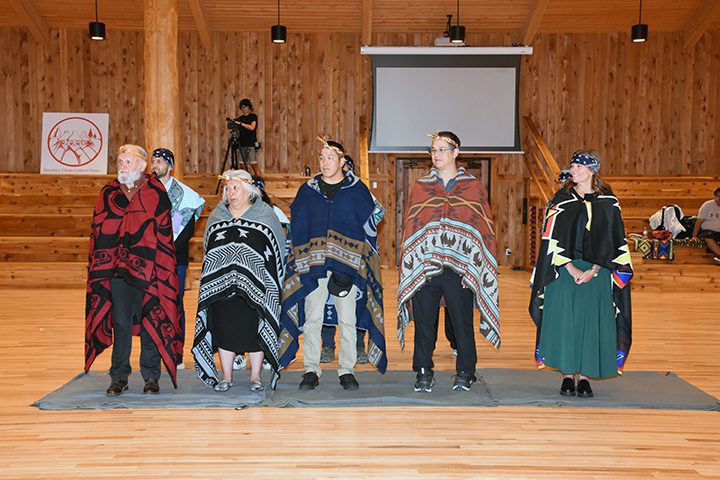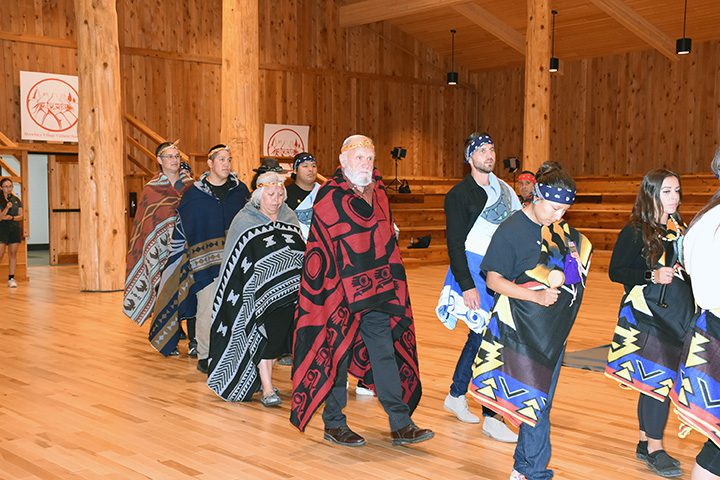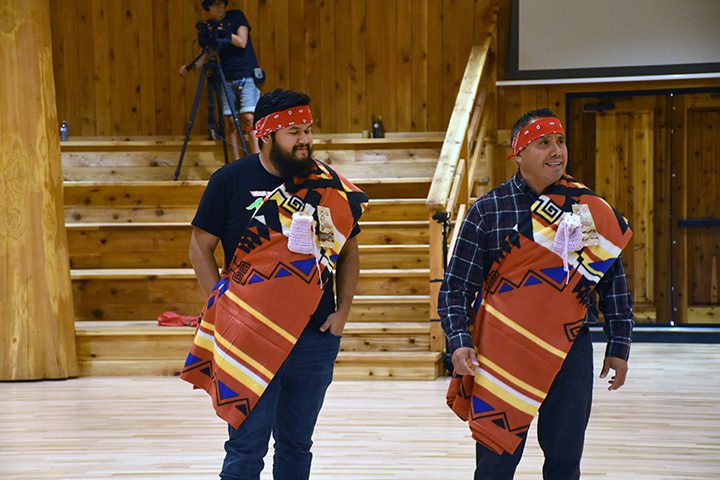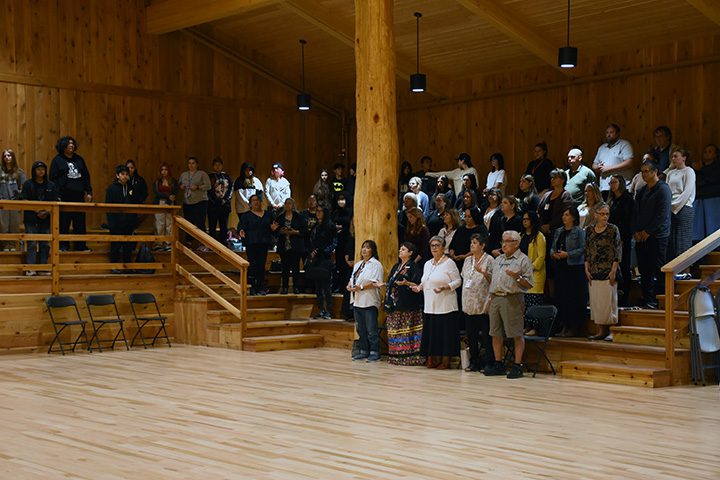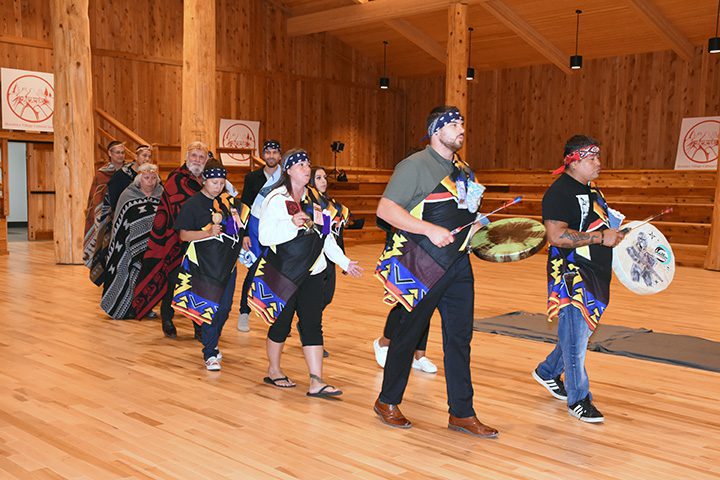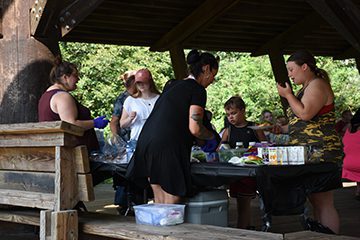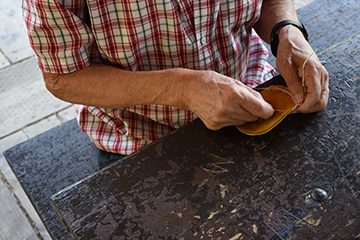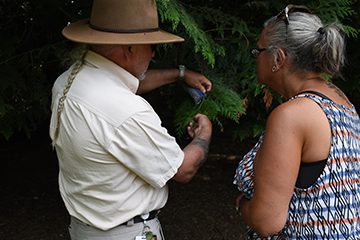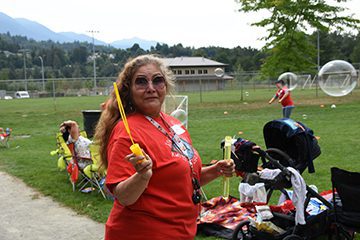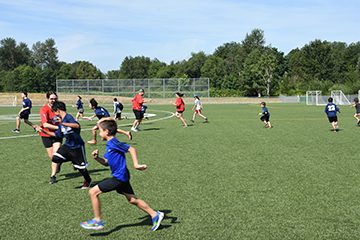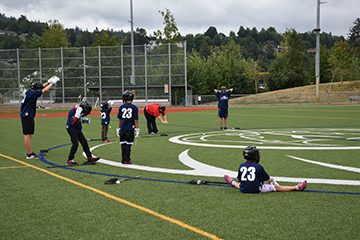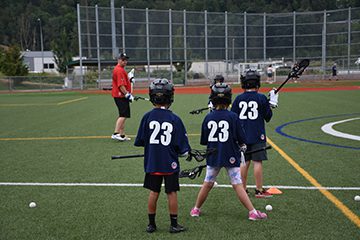Message from the board of directors
Fraser Valley Aboriginal Children & Family Services Society
Sqwélqwel - Xyólheméylh Fall 2023 Newsletter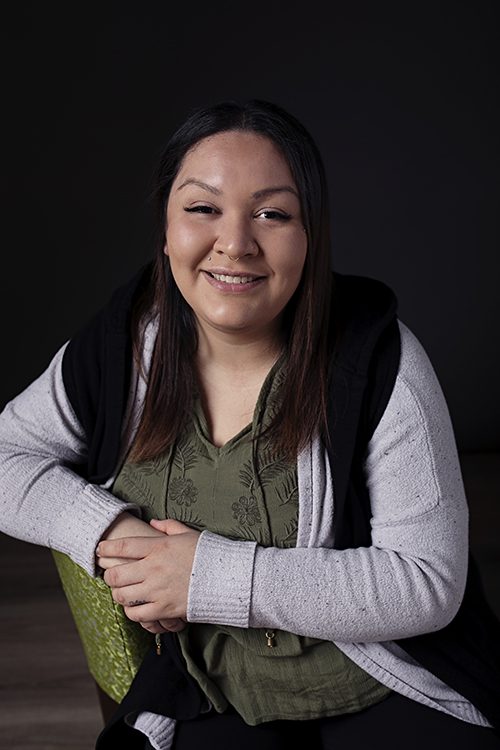
Board President Jennifer Janik.
Xyólheméylh Board of Directors President’s Message
Ey Swayel – Good day! Welcome to our Fall Newsletter.
We are preparing for our Annual General Meeting on November 14 from 6 to 9 pm at the Shxwhá:y Village Cultural Centre. Membership Registration is from 3:00 pm to 5:30 pm. Dinner is served between 5 pm – 5:45 pm. We have sent out the AGM package, along with our Annual Report for 2022-23 to our members. There are two Board seats open for Election. For information regarding membership please contact Carissa Gray by phone at 236-984-5362 or email at [email protected].
Our Secretary Jolene Irons Mcdivitt resigned from her role on the Board in September. We wish her all the best and raise our hands to thank her for her contributions, kwas hoy.
On September 13 we held a Naming Ceremony for Xyólheméylh at Shxwhá:y Village Cultural Centre. This ceremony was to reclaim the name of Xyólheméylh. Our teaching is that we cannot put names on organizations which is why we place it on people to uphold the name in a respectful way.
On July 25th 2023 our Board and Elders spent the day together doing some teambuilding while learning to make crafts such as medicine pouches and cedar bracelets. It was a great way to connect and build relationships with each other. You can see some of the photos from the day further down in the newsletter.
The Executive Leadership Team has undergone some recent changes this Fall. Penny Trites, Executive Director Staff and Community Relations resigned. Penny joined Xyólheméylh in the spring of 2020 and immediately had an impact on the Leadership of Xyólheméylh, providing strong guidance through a very challenging time. Penny continued to lead with passion, and HEART for our clients and communities.
Kyla Darby, Executive Director of Programs resigned to pursue other opportunities. Kyla joined our Xyólheméylh family in Spring 2019 as Director of Practice, before taking on the role of Executive Director of Programs later that year. During her time with us Kyla has been a pillar of our Executive Team and her knowledge, experience and leadership will be missed.
Laura Dawn Wilkin has accepted the position of Interim Executive Director of Staff and Community Relations. In the past several years Laura Dawn has led the Stó:lō Basket providing great leadership and strengthening our relationships with our partner communities. This experience makes Laura Dawn a great fit for this role, and we are excited to see the good work she will continue to do in her new role.
Rhea Del Vecchio will be the interim Executive Director of Programs. Rhea will hold the position for a period of three months while the Board identifies the next steps for Xyólheméylh. After 22 years in Child Protection, Rhea joined Xyólheméylh in March of 2021 and serves currently as our Director for the Guardianship Basket, and has been known to help grow the next generation of Social Workers through teaching at UBC.
Laura Dawn and Rhea join Rod Spitzig, Executive Director of Administrative Services as our new Executive Leadership Team. We raise our hands to Kyla and Penny for their hard work and dedication to our clients, communities, and employees. We wish Kyla and Penny all the best in their next adventures and look forward to our paths crossing in the future. Kw'as Hoy!
We are heartbroken by the Stó:lō Nation’s announcement in September of the confirmation that 158 Indigenous children died as a result of attendance at the former St. Mary’s Residential School, Coqualeetza Industrial Institute, All Hallows School and Coqualeetza Indian Hospital. We are also saddened by the stories of children suffering at the schools and the cruelty they experienced. Our thoughts and prayers go out to the Elders who are survivors of the residential schools and to the families and communities who lost loved ones.
Finally, the Fall season marks the Stó:lō New Year in the third week of October. We wish everyone a happy beginning to a new year and all the best for the winter months.
Melath’i:yatel – Jennifer Janik
President, Xyólheméylh Board of Directors
Message from Executive Leadership Team
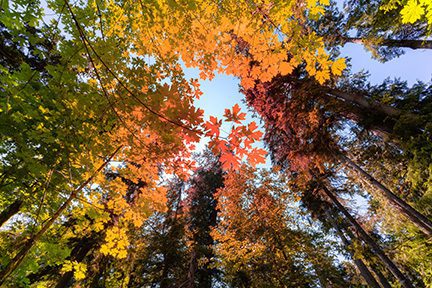
Welcome to our Fall Newsletter. The Executive Leadership Team has undergone some changes, as referenced in Board President Jennifer Janik’s message above. As a new Executive Team we look forward to working together with the Board, our staff, caregivers, Elders and our community partners to serve the children, youth and families in the xáxá témexw té Stó:lō. We are grateful for the opportunity to have worked with Penny Trites and Kyla Darby, we wish them the best in their future endeavors and look forward to building upon the good work they have left behind.
Xyólheméylh enjoyed a busy summer with many regional drop-in events for families and youth organized by our Stó:lō basket. We also held our now annual Setting the Table events every two weeks in Chilliwack and Abbotsford, a Lacrosse program for children and youth and Soccerpalooza, a one-day event organized by the Visions and Voices youth advisory. You can see photos from the events further down in the newsletter.
This is already a busy season. We enjoyed a wonderful evening appreciating our caregivers on October 18 at The’i:tselya – S.A.Y Health and Community Centre in Chilliwack. We are looking forward to a fruitful community engagement session on Jurisdiction October 25 and 26th.
Our Visions and Voices Forum is back after a three-year hiatus due to Covid restrictions. It takes place in Hope at Camp Squeah, November 17 to 19 and is an opportunity for Indigenous youth in care or who were previously in care to get together, take part in some fun activities and share their voices with Xyólheméylh.
As part of our commitment to improve outcomes for Indigenous youth we have opened a Youth Hub in Chilliwack. Youth can drop by on Tuesday and Thursday afternoons, talk to an Elder, do their homework, laundry or just hang out with other youth.
Wishing you all a blessed fall season.
Lets'emót – to be of one heart and one mind.
Rhea Del Vecchio, Rod Spitzig and Laura-Dawn Wilkin
Community Profile: Shxwhá:y Village
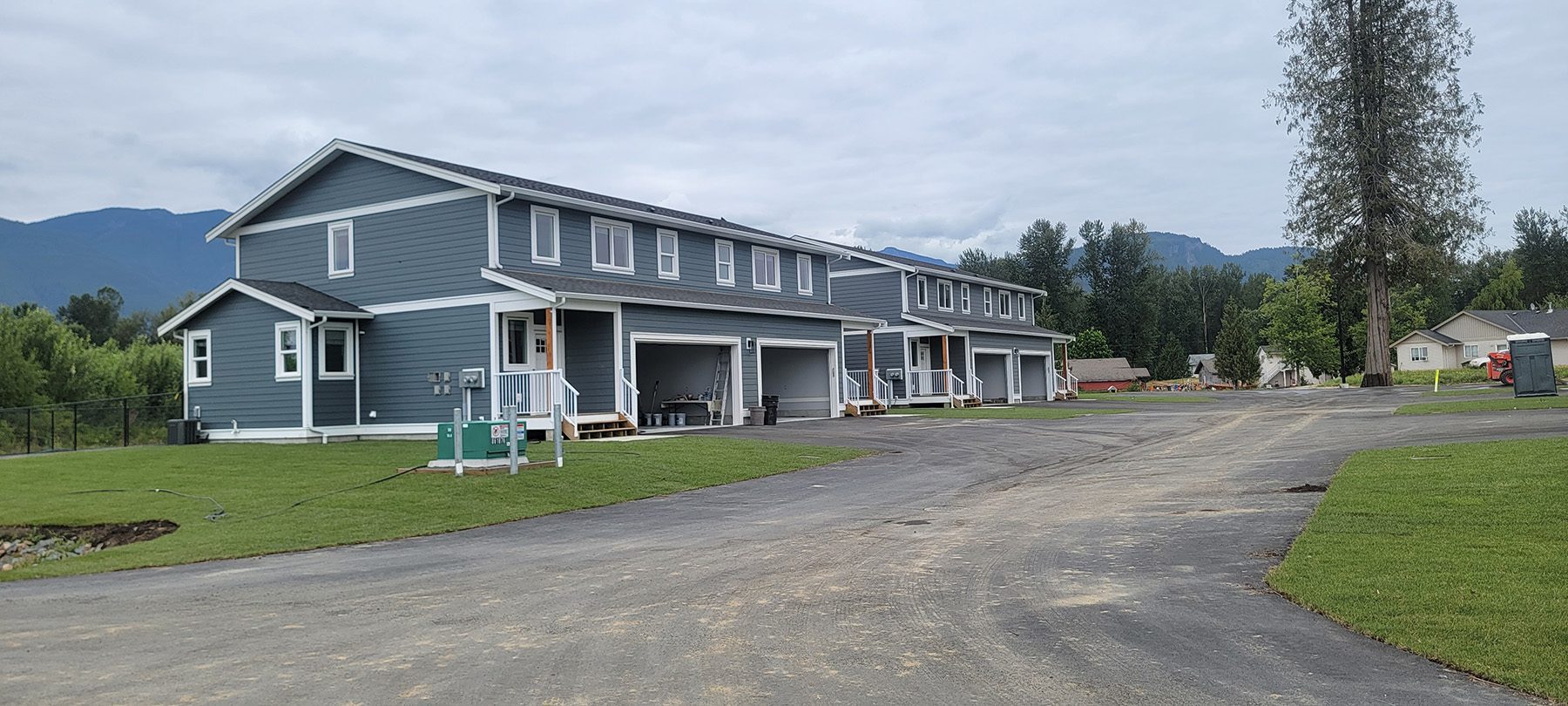
There is a construction boom happening at Shxwhá:y Village which is situated adjacent to Chilliwack and located within the Stó:lō and Ts’elxwéyeqw Traditional Territory. Under the leadership of Chief Robert Gladstone, the community’s goal is to improve services for their community and bring home families who live off reserve.
The Cultural Centre was finished one year ago and is used for Shxwhá:y cultural events such as jam out sessions before canoe journeys. The building is designed like a Longhouse with stair-like bench seating along the two longest walls, but with a wood floor instead of a dirt floor. The beautiful building is also rented out to non-community members and organizations for functions such as weddings.
Across from the Cultural Centre, Shxwhá:y is currently building a Smokehouse for ceremonial events, such as winter dancing. The building is expected to be complete next Spring. The community re-opened a store under licensing called All Nations last November where they sell their warehouse grown cannabis products. In addition, they’ve set up food trucks behind the band hall which serve coffee, poutine and brisket sandwiches.
Also under contruction is a multi-purpose building which has not been named yet. The building will house a gym and a learning centre, with eventual classrooms in the future.
All of this construction is meant to serve a growing community with affordable housing. They currently have 48 units for families and with the help of a $5.6 million grant from CMHC, they are building an additional eight duplexes for 16 more families.
Rachel Rabang, Housing Director for Shxwhá:y Village says: “There are a lot of positive changes happening in the community. It’s very exciting to see the growth.”
Meet a Caregiver: Danielle Glynn
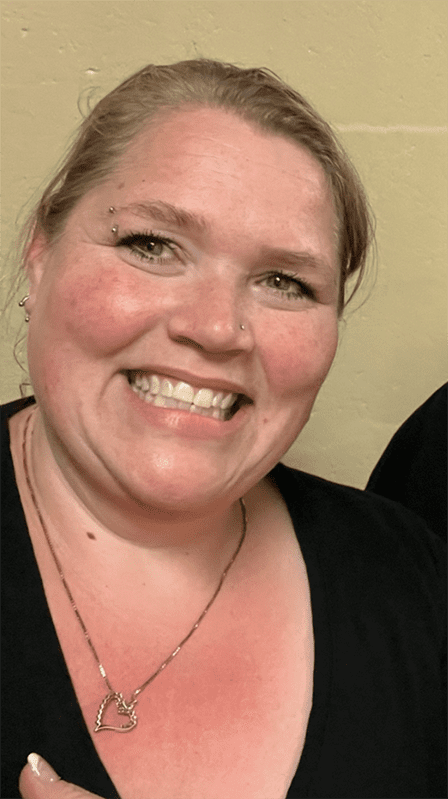
Danielle Glynn initially came to be a caregiver and foster parent through caring for and adopting members of her own family. She adopted three of her husband’s kids from a previous marriage, they had one child of their own, and she adopted two of her second cousins. Then in 2019 she became a caregiver for Xyólheméylh with two Métis babies who are now ages six and five. She also has two more Métis children in her home, ages three and two, who she has had in her care since they were infants. Throughout the years she has cared for a number of other children who have been returned to their families.
Danielle is from the Mi:kmaq First Nation in Nova Scotia and grew up with a strong sense of Indigenous culture and a love for children. “I love children, I’ve always been involved with kids and I love helping families,” says Danielle. “Kids keep you young and it teaches my own children about helping others.” She believes that it’s very important to keep the children in her care connected to their culture, even sometimes when their biological families don’t.
She treats the children’s families as extensions of her own and believes that they should be treated with respect. She also likes to stay connected to the children when they are returned to their families, so it’s important to maintain good relations with the families. “Kindness changes everything,” says Danielle.
She says she is happy to see children returned to their families because that is what is best for them, but admits it can be difficult, especially when it’s sudden. She recalls two children she had in her care who went to visit their father out-of-province and were suddenly returned to him during the visit, without the proper goodbyes and preparation. That was tough on Danielle, but she has since reconnected with the children.
Danielle and other caregivers make a huge difference, offering safe and loving homes. We lift our hands to Danielle and all the Xyólheméylh caregivers. If you are interested in becoming a caregiver we have info sessions the second Wednesday of the month at 6:30 pm and the third Tuesday of the month at noon. Contact Norma Commodore at: [email protected] to register.
New feature: Si:yólexwe teachings
Meet an elder: donna simon
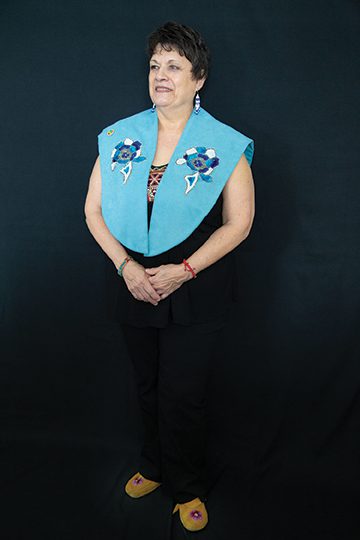
Medicine Teachings with the Elders: Cedar
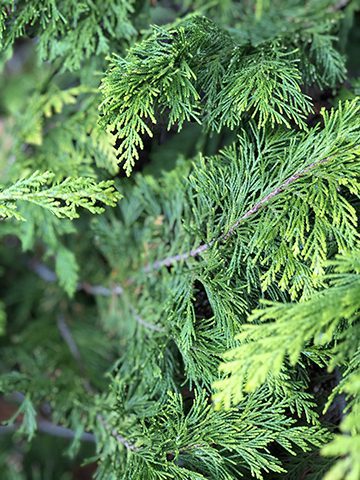
board & elders day
On July 25th 2023 our Board and Elders spent the day together doing some teambuilding while learning to make crafts such as medicine pouches and cedar bracelets. It was a great way to connect and build relationships with each other.
Ask an Elder: Longhouse etiquette with tha tisia
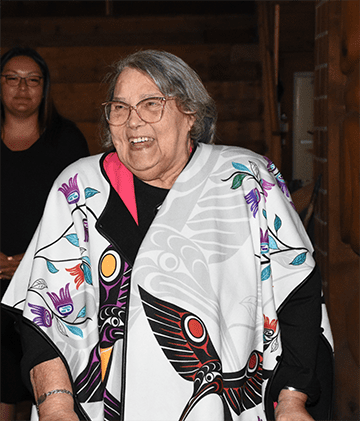
- Long skirts (below the knee) for women and dress pants for men. If a woman is not comfortable in a long skirt, then long pants;
- Shoulders covered;
- No open toed shoes;
- Dress respectfully, as if you were dressing for work or any event at a place of worship;
- Women who are pregnant should cover their bellies with a blanket. This is to protect the unborn baby;
- Turn your cell phone off;
- When a “Speaker” is sharing, staff and others should be quiet. They should not be using cell phones, walking around, speaking out;
- It is important to stay until the event has officially ended;
- The seats in the front rows are for the Elders;
- When sharing a meal, the Elders are served first.
a story to entertain
In this video Rupert Richardson sings The Men's Warrior Song. Rupert is from the Guskimukw, Nuxalk, and Chippewa First Nations. He is a PhD candidate at UBC and has worked in the field of education for 15 years. His research and community engagement centres around intergenerational healing, decolonization and post-secondary education.
Spotlight: Jolene Anderson, Coming Home & Second Chances
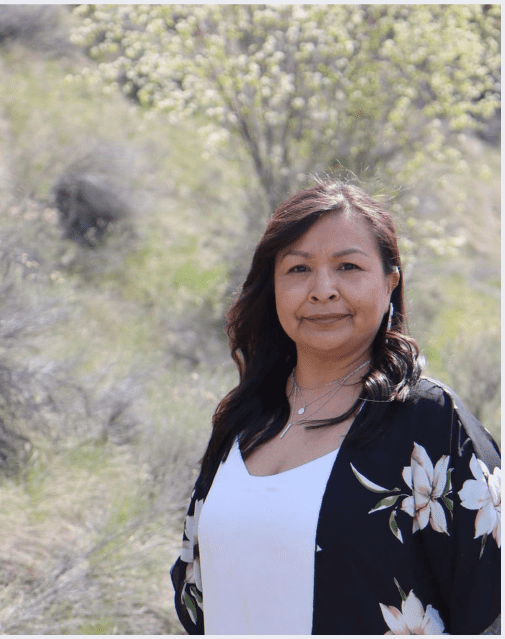
Jolene Anderson says her practicum placement with Xyólheméylh which began in 2005 helped her get her life back on track. She came to the Xyólheméylh as a single mother of three, a victim of domestic abuse and addicted to crystal meth.
“I began to see myself in a different light. Living disconnected from my community and family for most of my life, the agency was the first time I had a true connection to what it was to a healthy attachment. I truly believe it saved my life. I looked up to the social workers and they accepted me and took me in as their family. I was valued,” says Jolene.
She stayed with Xyólheméylh for five years until she made the decision to move back home to Neskonlith First Nations near Chase, BC on unceded Secwepemc territory. She finished a Masters of Social Work with Indigenous specialization from the University of Victoria and has worked for years as the band representative for her community. She now has her own business called Sacred Waters which helps Indigenous people address various topics such as grief and loss, addictions, safety concerns, child welfare involvement and general trauma.
“My biggest lessons that I want to share to agencies and families is that although I felt alone, I was never really alone. When I was a child who was having her own children, it wasn't that my mother didn't care for me. We didn't have a chance, residential school had taken my mother's voice from her long before I was ever born,” says Jolene. While studying for her Bachelor of Social Work, she asked her mother about her experience at residential school. Initially she said that nothing bad happened, but after some discussion she said she was taken away at the age of six and forbidden to speak her language.
“What I learned about trauma is that trauma is not the actual event that happened to you, it's what happened in your heart that is the trauma. By taking away my mother's freedom to speak what was given to her as part of her identity, she had internalized the belief that whatever happens to her, is her own fault; therefore, having her believe it is not safe to be herself, or to show/express her authenticity. That is the real trauma and tragedy that has repeated throughout generations. So how could she show me authentic, safe, love when I needed it?” says Jolene.
Jolene also says she learned that trauma has the ability to disconnect us from ourselves and others. “This is what happened to the generations in my family and why I truly believe the healing is at reconnecting Indigenous people with themselves, their families, and their culture – self-identity and belonging are they keys to our recovery and wellness,” says Jolene.
Jolene says it’s been a gift to help other Indigenous people from intergenerational wounds so that they can experience authentic, loving, and safe relationships. She does this through facilitating trauma parenting workshops and family circles and counselling. The trauma parenting workshop is not only educational but it also intended to be relational, meaning that it's also a support group. It allows for parents, grandparents, caregivers to share their challenges and wisdoms. It's meant to teach individuals about trauma and reflect, learn, and grow as individuals, families, and communities.
“The workshops allow individuals to reclaim their voices and create a safe environment to share and be vulnerable. Just as in my healing journey, the healing starts with them at the center. It helps them recognize, acknowledge their own feelings, internal beliefs, and allows space to different choices,” says Jolene.
“As a social worker I worked hard to provide the immediate needs of people but I really wanted help by getting to the root cause of trauma. This had to start with learning about my own trauma first. I've learned how trauma bonds have kept me from learning the truth and from growing and healing as an individual and in my relationships. With this knowledge, I am better equipped to be a grandparent. I also raise two of my grandchildren now. I say it's my second chance,” says Jolene.
Xyólheméylh naming ceremony
On September 13 we held a naming ceremony at Shxwhá:y Cultural Centre. In Stó:lō tradition, the name must be given to an individual or individuals who carry the name. This was an opportunity to recommit to the name and pass it on to other individuals. Rod Spitzig, Elly Janik, and Justin Williams all received names.
Youth Hub
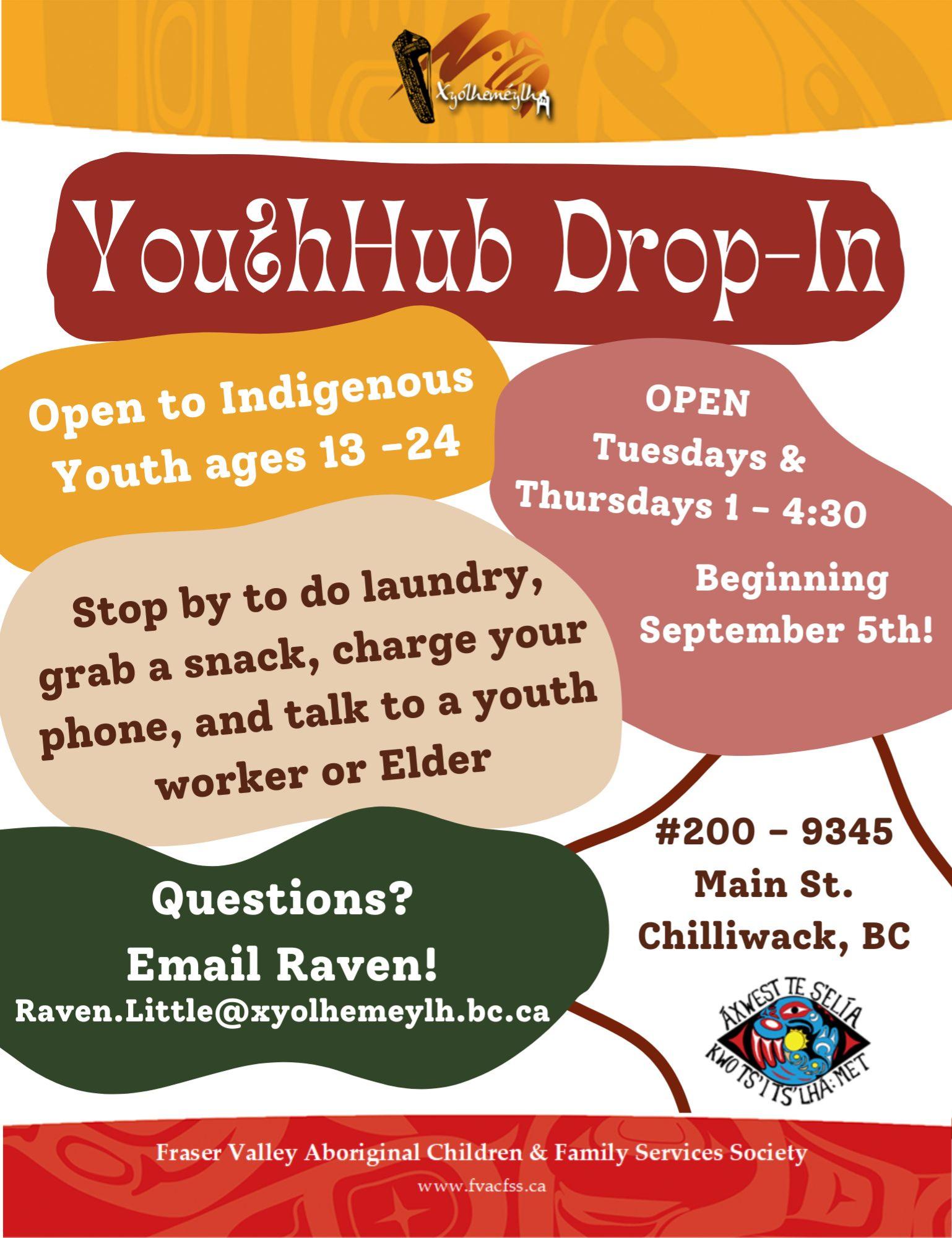
We're so pleased to be able to offer a Youth Hub Drop-In every Tuesday and Thursday afternoon from 1 to 4:30 pm. It's located at #200 - 9345 Main Street in Chilliwack. Youth can drop by, talk to a youth worker or an Elder, do their laundry, grab a snack or hang out with other youth.
XyólhemÉylh's summer events 2023
It was a busy and eventful summer at Xyólheméylh. Every second week in July and August we held Setting the Table events, alternating between Abbotsford and Chilliwack. We gathered as staff and families to share a meal and teachings on making medicine pouches and playing slahal.
On Saturday, August 5 Visions and Voices Youth presented their annual Soccerpalooza event at Tzeachten Field in Chilliwack. In addition to soccer activities and skill drills, there was a water gun battle, slip and side and BBQ.
We held numerous regional drop-ins for youth and families throughout the summer with activities ranging from making suncatchers, painting night with Brodie Wilson, weaving quarter bags, as well as an 80s Fun themed Children's Festival and a Youth Wild day at Wild Play.
Visions and Voices also held a Lacrosse sports program for youth ages 6 to 16 for four weeks over mid July and August at Tzeachten Field in Chilliwack. The youth learned how to play Lacrosse and got to take the gear home with them for future use.
Upcoming Events: Annual General Meeting
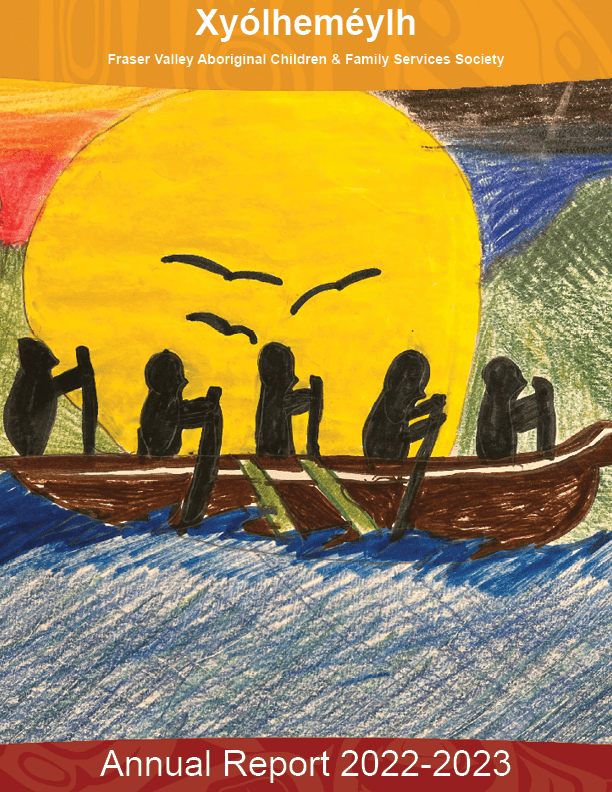
Our Annual General Meeting is on November 14 at Shxwhá:y First Nation from 6 to 9 pm. Membership Registration is from 3:00pm to 5:30pm. Dinner is served between 5 pm – 5:45 pm. We have sent out the AGM package, along with our Annual Report for 2022-23 to our members. There are two Board seats open for Election. For information regarding membership please contact Carissa Gray by phone at 236-984-5362 or email at [email protected].
You can also read our Annual Report online at: https://www.fvacfss.ca/fvacfss-2022-2023-annual-report/
Christmas card art contest
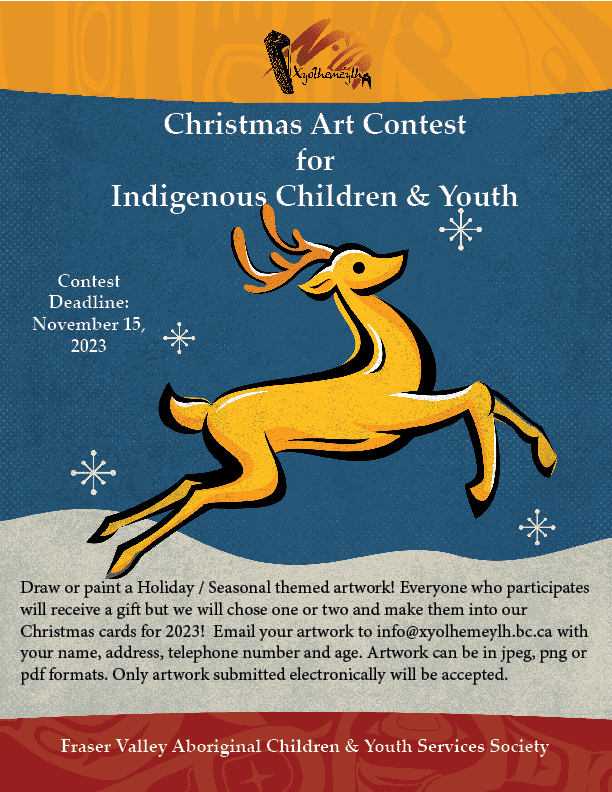
Help Us Spread Holiday Cheer This Christmas!
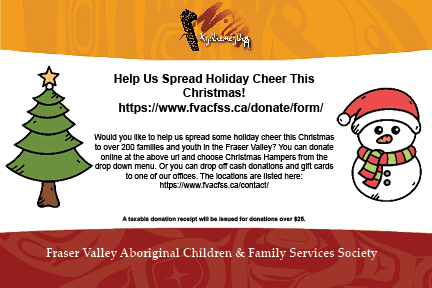
Christmas Party
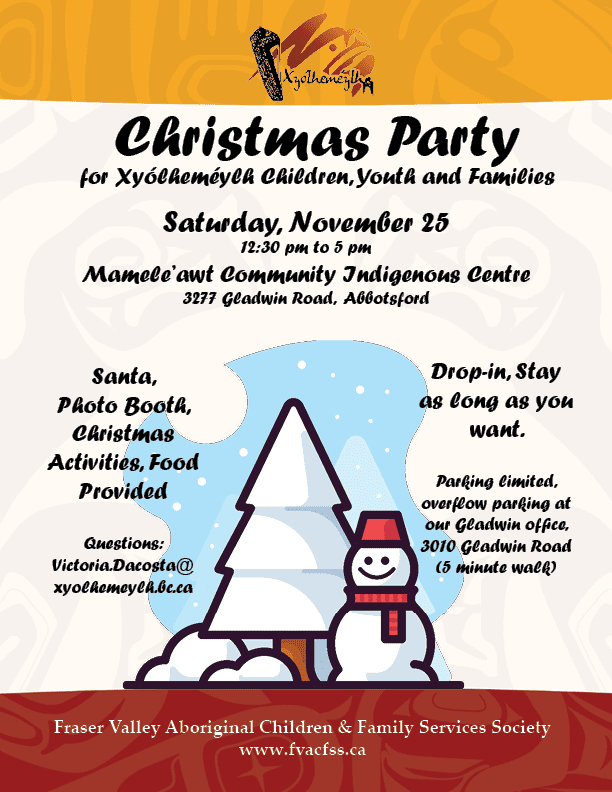
visions & voices: a not so silent night
